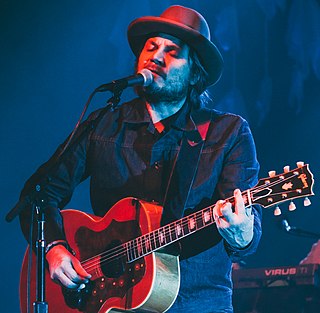A Quote by David McCullough
When you start to write, things begin to come into focus in a way they don't when you're not writing. It's a very good way to find out how much you don't know because you learn specifically what you need to know that you don't know at the moment by writing.
Related Quotes
I myself, as I'm writing, don't know who did it. The readers and I are on the same ground. When I start to write a story, I don't know the conclusion at all and I don't know what's going to happen next. If there is a murder case as the first thing, I don't know who the killer is. I write the book because I would like to find out. If I know who the killer is, there's no purpose to writing the story.
Writing a book about [Buckminster Fuller] in the sense of deciding how much to - how much biographically to gloss over and how much I can leave out is relatively easy as it is because the true believers already know everything. They know a lot of things that are not true and they know a lot of things that I thought were (and seems there's very good evidence not to believe) and therefore, my starting point was I think to tell his myth because that's what grabbed me.
Writing helps us heal in certain way, but it doesn't make the experience of thinking about writing that occasion any less painful. When you revisit trauma, you don't know what's going to be triggering for you because you don't know how it's connected in your mind. So in the same way when we write something, it doesn't completely resolve the experience for us. It can feel therapeutic, but that's not the reason why I do it. I do it to ask a question, or just to find meaning.
I have friends who are capable of writing a very rough draft and then going back and embroidering - they're sort of the cathedral builders of fiction. I never really know what I'm doing, and all my pleasure's on the level of the line. It's a weird way to move forward. It's kind of like a way to caterpillar your way through these great woods. The best ones, whatever I feel like I'm writing about, some other secret thing will begin to come into focus.
I feel that when I began writing, I had a need to know more about the play before I got into it. I think that's the way I was thinking. But my actual experience is that the best way to find out what the structure is, is by writing the play out laterally. You just have got to be brave enough to start without knowing where you are going.
There is nothing you can do except try to write it the way that it was. So you must write each day better than you possibly can and use the sorrow that you have now to make you know how the early sorrow came. And you must always remember the things you believed because if you know them they will be there in the writing and you won’t betray them. The writing is the only progress you make.
The most common thing I find is very brilliant, acute, young people who want to become writers but they are not writing. You know, they really badly want to write a book but they are not writing it. The only advice I can give them is to just write it, get to the end of it. And, you know, if it's not good enough, write another one.
I don't know why I write. The honest answer is that I don't have an answer. I wouldn't die if I couldn't write fiction. Actually keel over and die - it's unlikely. But quite quickly writing has come to feel like the only thing I really know how to do. And I go a bit stir crazy if I don't write more or less every day. But that makes writing sound like a mood-regulator, a way to regulate anxiety or depression, and it doesn't really come down to that.
I couldn't have articulated this process at the time; I just sort of did it instinctually. But now when I talk about this with my students all the time, it's one of the first things I address in memoir classes - that you have to put it all in because you're writing your way into the ending of your own story. Even if you think you know what the story is, you don't until you write it. If you start leaving things out you could leave out vital organs and not know it.
I think the more that I can find myself getting out of the way - like you said yourself - trying to get out of thinking too much, and sometimes something truly special can happen. That's the beautiful mystery of song writing - that you really don't know where these songs come from exactly, and you don't know how you came up with them - and god bless it that you should have the gift of channeling that.







































